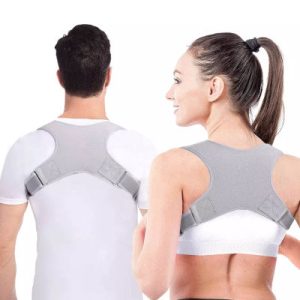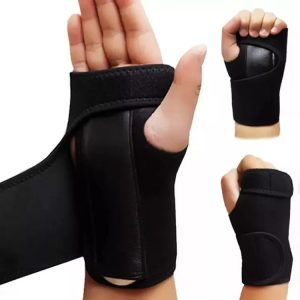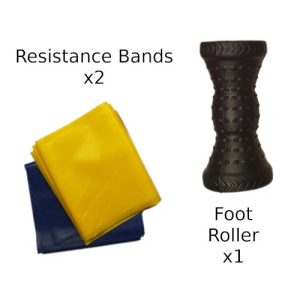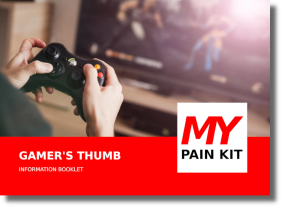Which is better for pain? Stretching or Strength Exercises?
At different stages of your injury and rehabilitation, stretching and strengthening are important.
Stretching Or Strengthening – The Eternal Debate
Ever since starting our Chiropractic Practice 20 years ago, patients have been presenting to our three clinics with injuries such as back pain, neck pain and shoulder pain, hip and knee pain, tennis elbow, golfer’s elbow and plantar-fasciitis (foot pain) just to name a few. Pain, stiffness and immobility predominantly being the main presenting symptoms.
Treatment For Injuries & Strains
In the early days we would go straight into treatment:
- Soft Tissue Work
- Massage and Trigger Point Therapy
- Spinal Manipulation
- Heat and Ice
- Home or Office Rehabilitation using Simple Home Stretches
For the most part this would work in the short term but in my experience the improvement would only be temporary. If the muscles are tight it makes sense to stretch, so why are these patients not getting full resolutions from their pain and dysfunction. Why are the symptoms coming back, even after stretching?
Why were the stretches not working?

What Does Stretching do?
Stretching Exercises stretch the muscles fibres with the aim to increase muscle flexibility and improve joint range of movement, to help restore function, decrease pain without resorting to drugs and prevent injury.
Benefits of Stretching
The main benefits of stretching programmes include;
- Increased range of movement
- Decreases muscle tension / tone
- Increases proprioception (awareness of body position)
- Improves neuromuscular coordination
- Reduces the risk of muscular and soft tissue injury
- Improves nutrients to muscle and joints
- Increase blood flow to help decrease inflammation and pain.
This is great and will work the majority of the time. But for some people, why does it only work temporarily? Why do stretch exercises alone not work for everybody?
Benefits Of Strength And Conditioning
Once you have reached a level of rehabilitation, the answer to preventing an injury from recurring is mostly down to strength. If a muscle or muscle groups are weak the stretching exercises will only work temporarily and your injury could re-occur.
Working at a desk for a while is fine, but if you stay in that position for hours and hours, the muscles in your upper body (shoulder, upper back and neck) slowly become fatigued, and this is what sets you up for stiffness/tightness.
You feel this stiffness coming, and you do some stretches to relieve it!
Great – you feel better, but to be very honest, the stretches will only temporarily give the muscles a break, but this won’t prevent the symptoms from coming back again! The issue isn’t the tightness of the muscles in the first place! Using a keyboard and mouse isn’t difficult, but over time it will cause muscle fatigue which induces the sensation of tightness.
Strengthen Muscles To Help Stiffness And Pain
If you work to strengthen the muscles, these every-day actions become less tiring because you have increased the muscle’s endurance and strength capacity. The muscle is no longer stressed and prone to fatigue – so it’s less prone to stiffness and tightness.
So in our experience a combination of Movement, Stretching and Strengthening for most injuries works best.
- Move the area of injury
- Stretch the muscles around the area of injury
- Strengthen the muscles around the injury
Frequently Asked Questions:
Stretching (and movement) should be done every couple of hours if you have back pain. It doesn’t have to be very deep or painful stretches. It’s more important to move your back through it’s full range of movement, so that it eases any tightness that has built up over the day.
Lifting weights if your back is injured is certainly a bad idea. With therapy, what you’re looking for is:
- Stretch Tight Muscles
- Strengthen Weak Muscles
Only if you’ve had a full diagnosis and are well on your way to recovery, you can use Strength Training as a way to stop the injury coming back. The full range of actions you can try are:
- Brace / Support
- Heat Therapy
- Massage
- Movement Exercises
- Stretches
- Strength Exercises
- Cold Therapy
You would need to do both of these things, to ensure your Hip Flexors are supple enough, and strong enough to do their job. This area of your body can become very stiff if not exercised regularly, with specific movements to target these muscles.
Your knee joint itself won’t be weak unless you’ve an actual injury such as a torn meniscus. Osteoporosis an Osteoarthritis can affect your knee, making it feel weak. Weakness generally refers to the muscles that act on the knee, and work through the joint. A muscle imbalance can cause the kneecap to track wrongly, and mis-align your knee, which is a very common injury experienced by runners or cyclists etc.
A Massage does stretch the muscles in your neck, so it’s very beneficial. You should also engage in specific neck stretch exercises so that you are sure you get the full range of movement in the neck. If this helps the pain subside, you can then try some minor strength exercises for your neck, so help avoid the injury coming back. Regular movement, stretching and good posture are the keys!









